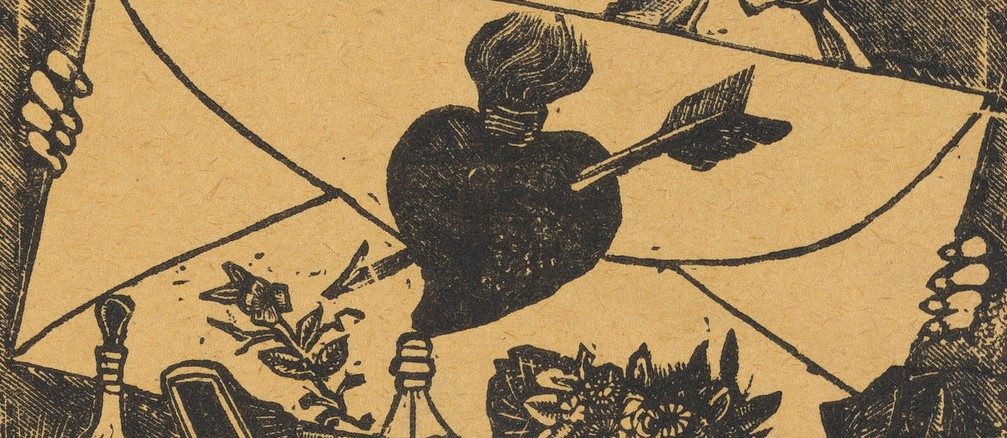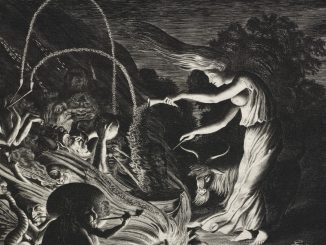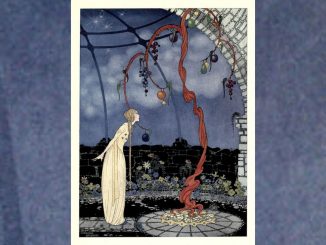
I don’t fall into open gravel pits often.
The last time I recall it happening—seven years ago—the fall lasted a short time.
Slight exhilaration. Much uncomfortable depth of feeling. Rock slivers burning under the skin of my knees. Tiny surgeries. Infinite wash of red scar.
Crushes, when they take over my body, I don’t recognize them, not at first, because my brain needs time to understand that yes, after spending hours in the company of some person, realizing I find their teeth quite pretty, almost too pretty, almost lickable, is likely a sign of things beyond aesthetics.
This time, it takes a dark forty-minute drive to my temporary home up a So-Cal canyon, thinking of catching sight of a mountain lion, the way only the night before that coyote stopped and stared, like what the fuck lady, like this is mine lady, like lady, you will watch me watching you, and know I am in control, know this will break when I break it, before I strip out of my strapless bra and realize, damn, I have a crush.
~
Idris Elba is 2018’s Sexiest Man Alive and I see it. Very much so. Just like I noticed George Clooney’s appeal back when he was on ER doctoring in scrubs and I was a kid watching TV with my mom. I was the first of my middle school bunch to declare Clooney good looking, shyly, of course, since immediately, they ewwwed me for thinking someone old was pretty.
But appreciating aesthetic beauty is not attraction, does not make a crush.
To properly understand this has taken decades.
~
Yet, in knowing my own workings closely, carefully, in detail that as a teen I couldn’t imagine existed for us humans, still, crushes manage, like wildfire, to surprise me.
My middle school friends, grown now, return from the wedding’s after-party, drunk and bubbly.
One heads directly to the bathroom.
The other begins snacking on blue corn chips. The first thing she says to me is: “So, you and [redacted] got along, eh?”
Me, from bed. Me, recently woken from twenty-whole-minutes of desperate sleep. “Yeah.”
Emerging from the bathroom, my other friend’s digging into the salsa, and immediately turns on me. “Do you have a crush on [redacted]?”
In the movies—you’ve seen this one before—bedraggled, and with still-wet hair from her post-party shower, the protagonist says, weakly, “I don’t know,” and falls into a stack of over-firm pillows. There are too, too many pillows. Far more than are practical.
The pillows burn my nose.
My more direct friend translates, “That means yes,” and returns to snacking.
They reminisce about pricey French champagne, how you can taste each grape, when with other champagnes you’re simply getting buzzed.
The next morning, sober, no one mentions [redacted] again.
~
The ability to develop a crush on another person is billed as normal. We joke about kindergarteners having little crushes on each other. TV tells us our parents will be forever interested in our sex lives, at least if we buy into the Lorelei Gilmore school of parenthood. We’re told that if we don’t crush, don’t fall hard, don’t easily experience this connection, we’re broken.
~
At the wedding, at the end of the groom’s very heartfelt and loving speech, he joked he was glad he had swiped right.
The audience laughed.
I laughed too. But also, I knew, for me, that joke wasn’t really funny. It’s strange to the point of uncomfortable to go online and select someone you might want to maybe one day have sex with by assessing their aesthetic qualities alone. Nice haircut. Nice smile. Nice fucking teeth.
Occupations have a degree of aesthetic pleasure, so Tinder experts tell me. You know, doctors before lawyers, and lawyers before aspiring actors or AR-15-owning dudes.
Everything before the military.
Maybe that last one’s just on me. My own hang-up.
~
For those of us on the ace spectrum, media representation is lackluster. As a demisexual, crushes hit me so infrequently, there’s very little training out there in how to approach them. In what to do, in how to act.
In what to say after the party’s done and all the lights are bright.
Me: It was really nice meeting you.
[Redacted]: You too.
This is where it goes wrong.
Where, since, I haven’t understood yet that I want to spend more time with him, that there is something else to articulate, something to light by asking a question, I say: Thank you.
Internally, those who know how to flirt, who know that when the transition between here’s a nice human to talk to at this ocean-side Malibu wedding about human rights and politics and middle school and families to here’s a human whose teeth are super pretty and wow, his teeth, every time he smiles, his teeth!, don’t blush, those who know better than right there in the moment to say thank you, like this is a banking transaction, will likely be cringing now.
Elsewhere, I tell people I’ve said the wrong thing. Laugh about.
This sticks and dries in the air.
He doesn’t tease me when he’d teased me earlier.
So it stays.
~
While beholden to a crush, I speak it out loud to recognize it.
To manage it.
This fat demi, stunning in her strapless dress, charming because she can’t do small talk, can only talk of things she loves deeply, in nude heels she’s wearing because this event is formal, but also her legs look exceptional, leaves holding a heavy centerpiece, green sage, roses, and lilacs in glass, and also, with a crush.
It’s unexpected. Infuriating. Sea-salt but strangely welcome because I say no—no, so often—existing outside this state, only lulling here for micro terms that hardly make sense, and this time, if this crush were reciprocated, if 1722 kilometers didn’t gulf between us, if my last words weren’t Missouri, come for the hiking, stay for the meth, it would have been different.
Sometimes, the world screams in metaphor. Now, four days later, all of Malibu is on fire.
AUTHOR
Jenny Ferguson is Métis, an activist, a feminist, an auntie, and an accomplice with a PhD. She believes writing and teaching are political acts. BORDER MARKERS, her collection of linked flash fiction narratives, is available from NeWest Press. She teaches at Loyola Marymount University and in the Opt-Res MFA Program at the University of British Columbia.
Twitter: @jennyleeSD
Featured image: José Guadalupe Posada, “Front and back covers printed on the same sheet for a collection of love letters (number 1),” photorelief and letterpress on yellow/orange paper, ca. 1900–1910.



